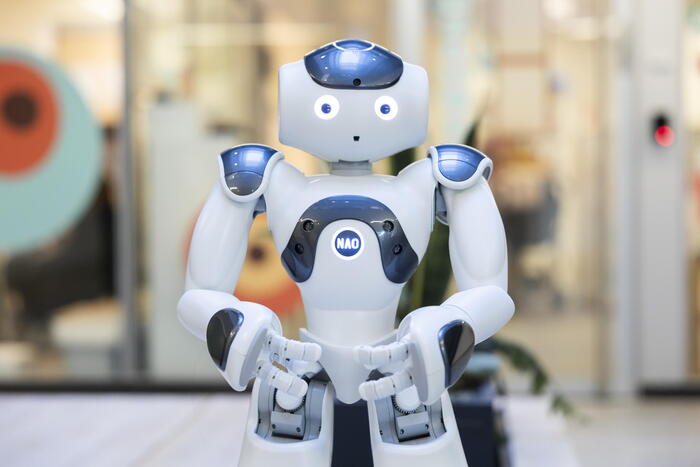"Use it or lose it," my Latin teacher used to tell me. And he was right. Decades later, I would be unable to decline Latin verbs even if I had my life in it.
I write these words on an airplane. It's cold and windy, and the pilot has mentioned the possibility of turbulence. If there was an emergency, I wonder if the pilot has enough flight experience to know how to hunt it.
Both Continental Connection Flight 3407 and Asiana Airlines Flight 214 crashed because the pilots did not master landing without the use of high-level automation. As flight has become automated, pilots have lost certain skills needed to fly manually, such as navigation based on waypoints and calculating the speed and altitude of the plane. They don't have enough practice. People get bored when autopilot takes care of most tasks. When automation fails or requires human intervention, distracted pilots are less able to overcome risky situations.
Artificial intelligence (AI) is the ultimate automation. The aspiration is to create a type of tool that can take care of as many of our tasks as possible. As we increasingly rely on AI in more spheres of life, it's worth asking whether and to what extent more automation will lead to a loss of expertise, and to what extent that might be a problem.
The concern that technology could degrade our cognitive abilities is not new. In Plato's Phaedrus, Socrates argued that writing would cause people to rely too much on external sources rather than on their own understanding.
Socrates thought that writing would stunt people's memory, and that it could not provide the same level of understanding and dialogue that can be achieved from verbal communication, where ideas can be questioned and refined through conversation. In contrast to live dialogue, the written word lacks the ability to adapt to different contexts and can therefore be easily misinterpreted or misunderstood. The writing does not respond.
Was Socrates right to worry about writing? I'm divided. On the one hand, I fiercely defend the written word. Books are one of the best parts of life. They allow you to live many lives in one, travel to faraway places from the comfort of your couch, explore ideas that would never have occurred to you, meet people you would never have met before. Writing kept Socrates alive during all these centuries. Thank you, Plato.
The word on paper has facilitated the accumulation and exchange of knowledge. Even if our ancestors had a prodigious memory, they would not be able to memorize the entire Bodleian Library, which I am lucky enough to be able to access.
Writing improves thinking. The pace of the process allows for leisurely reflection, and the possibility of editing invites refinement. Outsourcing words on paper or on a screen allows cognitive processing to be offloaded and facilitates the handling of complicated arguments, in the same way that it is easier to do a long multiplication on paper than in the mind. Writing is not only about expressing what one thinks, but above all about discovering what one thinks as one goes.
However, Socrates was right that writing has probably damaged our memory. Centuries ago, people memorized entire books, word for word. I couldn't even remember my current phone number.
So what? Is memory important? If I always have my phone with me, what does it matter if I can't remember my own number? A key element is reliability. If AI is reliable, it doesn't seem very alarming that we lose some skills. But there are at least four ways AI may not be reliable.
First, AI is (currently) expensive. Running powerful systems requires a lot of computing, which in turn needs a lot of power. Chips, batteries and devices rely on raw materials such as lithium, cobalt and nickel, finite resources that could run out.
Second, most applications that use AI are connected to the internet, and anything connected to the internet can be hacked.
Ransomware (when a hacker virtually hijacks a computer and demands a ransom for its release) is an example of the risks. Two decades ago, factories, power plants, hospitals, airports and offices were powered by analog tools, which are more robust than digital equivalents. Many of today's institutions no longer have the option to operate manually, or have not maintained the necessary analog skills. When metals and electricity company Norsk Hydro received a bailout demand, it managed to avoid closure by switching to manual operations, but only thanks to older employees and other workers who returned from retirement to lend a hand.
Twenty years from now, the generation that knows how to run things in analogue will no longer be around to help us. The task ahead of us is to make digital much more robust than it currently is, while brushing up on our analogue skills to have them as a backup.
Third, AI can be unreliable because it is managed by a few powerful tech giants. A company like OpenAI could decide to raise its prices, introduce operating conditions, or change its algorithm for the worse, and if we've come to rely on their AI, we'll be at their mercy.
Fourth, and more importantly, today's AI has an unreliable relationship to truth. The most popular type of AI is based on neural networks. An AI like ChatGPT works by statistically analyzing the texts you've been provided with and generating compelling answers based on your training data. But it does not use logic or rely on empirical evidence. It has no tools to track the truth. As a result, he often "hallucinates" or fabricates convincing answers (based on his statistical analysis) that are nevertheless false. When I asked him to cite ten books by Carissa Véliz, he invented nine plausible but false titles.
The unreliability of AI should make us think twice about the skills we are losing to it. Even if AI were more reliable, we would have reason not to want to lose certain skills. Let us remember Socrates, writing and memory.
Memory and attention are related. The key to remembering something is being able to pay attention to it. If writing has weakened our memory, our attention span has also deteriorated, and is probably being further eroded by digital technology.
As I write this article, my attention keeps jumping—from the blank page to references, to a text message from my mother, to hundreds of social media notifications, and half an hour later, back to these letters. These jumps prevent me from achieving the pleasure of the flow state experience that can arise after hours of sustained concentration.
It is often assumed that more automation will allow us to focus on more meaningful tasks. It seems unlikely to me. The washing machine is a fantastic invention, but it did not come alone. Thanks to the washing machine, I may not spend as much time doing laundry as my grandmother, but I spend more time with email than she did doing laundry. And I bet she had more room to have interesting thoughts while doing laundry than I can have while emailing. The experience of doing laundry—the feeling of water running through our hands, for example—is also more enjoyable to our bodily experience than staring at a screen all day.
When it comes to writing, automation could weaken or eliminate some of the critical thinking skills we acquire when we choose to ignore Socrates and embrace the written word. If we use chatbots to write for us, at best, we may get a more or less acceptable product with a fraction of the time and effort that would have been written manually, but we will have missed the process. Writing is a way to sharpen our cognitive abilities.
If our students get used to relying on chatbots to write their assignments, they could lose creative and critical thinking skills. Among the skills that writing improves is empathy. When writing you have to put yourself in the reader's shoes. Will he understand what you are trying to communicate? Are you sure you're not going to bore them? Are you taking into account other points of view? Social skills are some of the most valuable we possess; We would do well to make sure we don't lose them.
While the plane I'm traveling on lands smoothly on the runway despite the storm, I think we should pay attention to my old teacher and use the skills we don't want to lose.
Subscribe to continue reading
Read without limits
Read more
I'm already a subscriber











/cloudfront-eu-central-1.images.arcpublishing.com/prisa/KMEYMJKESBAZBE4MRBAM4TGHIQ.jpg)


/cloudfront-eu-central-1.images.arcpublishing.com/prisa/EXJQILQR5QI7OMVRTERD7AEZAU.jpg)
